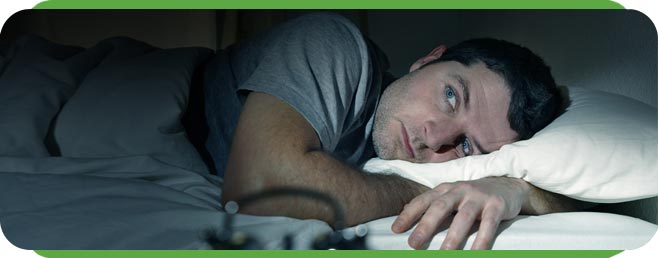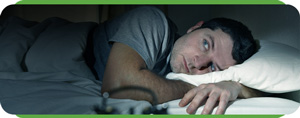Sleep Parasomnias Treatment Questions and Answers
If you are suffering from sleep parasomnias and want a comprehensive treatment, visit Koala® Center For Sleep & TMJ Disorders. For more information call us at one of our clinics today or request an appointment online. We serve patients from all over the USA. Locations in Bloomington IL, Peoria – Dunlap IL, El Paso TX, and Wausau WI.




Table of Contents:
What is sleep parasomnia?
How do you treat sleep parasomnia?
How serious can sleep parasomnia be?
Sleep parasomnia is a term that refers to any abnormal behavior during sleep, including talking, walking, and other movements. These irregular behaviors most commonly occur during the REM (rapid eye movement) stage of sleep, however, non-REM parasomnias can also occur and are referred to as disorders of arousal. These parasomnias are characterized by recurrent episodes of incomplete awakening, limited cognition during the episode, and limited responsiveness to external attempts of intervention or redirection of the sleeper. The majority of people who experience disorders of arousal have no or very limited memory of their episodes. These disorders include:
– Confusional Arousals — The person experiencing a confusional arousal exhibits mental confusion or confusing behavior in bed. Most people who experience confusional arousals display very little autonomic response in the form of perspiration, dilated pupils, accelerated heartbeat, or accelerated breathing. Confusional arousals may also be referred to as Elpenor syndrome.
– Sleepwalking — Also known as somnambulism (or somnambulance), sleepwalking occurs when people get out of bed while still asleep but exhibit limited responsiveness or awareness to their surroundings. They may exhibit other complex behaviors such as sorting clothes, preparing food or even cleaning. Sleepwalking can also lead to injuries if the individual loses their balance and collides with other objects, or if they wander outside and into traffic or the wilderness.
– Night Terrors (or Sleep Terrors) — People who experience night terrors often scream in their sleep, which can manifest as short, frightened bursts or long, drawn-out guttural howls. In most instances of night terrors, individuals are not responsive to outside stimuli and have no recollection of the source of their terror upon waking. Most night terror episodes last between 30 seconds and three minutes, and they can also occur up to several times a night.
The best way to treat parasomnia depends on many factors, including the symptoms present, the severity of the symptoms, their frequency, and perceived cause. In some cases, symptoms can be significantly ameliorated by a lifestyle alteration as simple as a change in diet or drinking less alcohol. Other effective treatments include behavioral therapy, hypnosis, and psychotherapy, although these treatment methods may not be as effective for some parasomnia symptoms. As is always the case, a treatment that is effective for one person may not be effective for another, so it is essential to discuss all symptoms with a qualified sleep doctor in order to establish what the most effective treatment option might be for each individual.
In most cases, parasomnia is not serious. However, there are certain circumstances that would make parasomnia very dangerous, including when moving during sleep puts a person in a hazardous situation, such as walking in traffic or even getting behind the wheel. While these cases of parasomnia are considerably rare, they can certainly be life-threatening and have been reported in the past.
If you are experiencing symptoms of parasomnia, come to Koala® Center For Sleep & TMJ Disorders for a professional diagnosis. We can help you find out what is causing your parasomnia and treat its root cause for long-term and effective relief. To provide care for as many people as possible, Koala® Center For Sleep & TMJ Disorders has convenient locations near you in Bloomington IL, Peoria – Dunlap IL, Mishawaka IN; Wausau WI; and El Paso TX. To find out which Koala® Center For Sleep & TMJ Disorders is closest to you, visit our Locations page! We look forward to serving you!

Additional Services You May Need
▸ KoalaKIDZzz®
▸ Sleep Apnea
▸ Snoring
▸ TMJ Disorder
▸ Fatigue
▸ Sleep Disorders
▸ Weight Loss
▸ CPAP Alternative
▸ Oral Appliances




